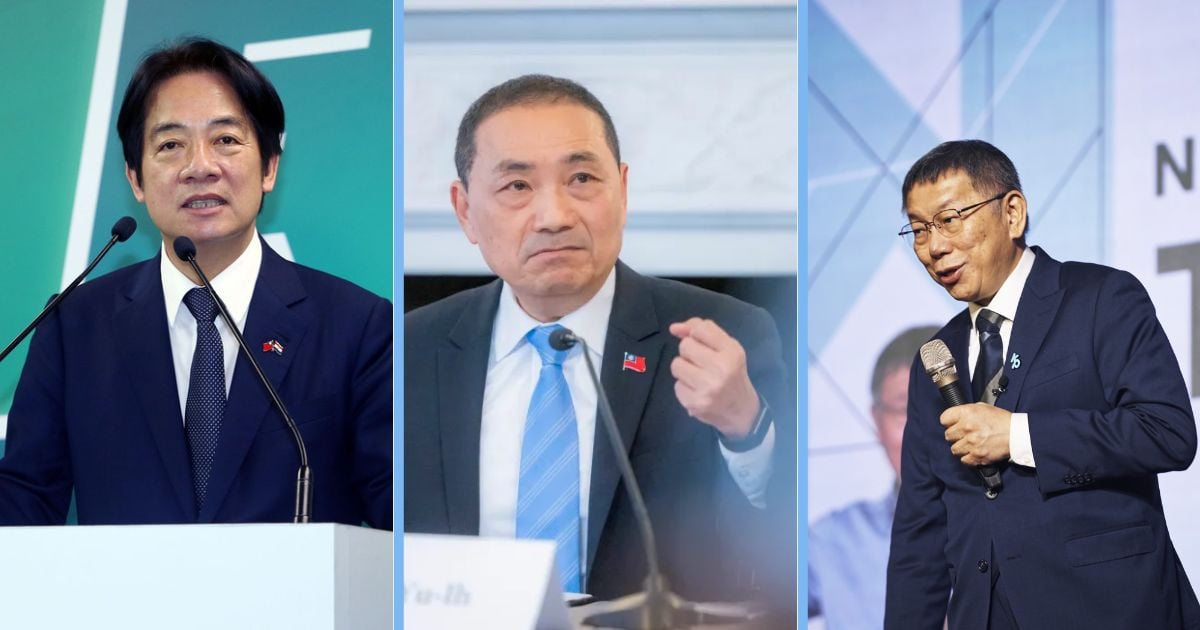Taiwan will be kickstarting the New Year with a presidential election that is taking place on 13 January 2024.
As we anticipate this election, let’s delve into the details with these 8 essential facts:
How the Election will Take Place
This marks Taiwan’s Eighth Direct Election of the President and Vice president. Approximately 19.5 million Taiwanese voters will be able to cast ballots at almost 18,000 polling stations. 1 million of the 19.5 million are first-time voters.
Although the election takes place in January, the new president will only take office on 20 May 2024.
The Election Involves Three Candidates
This election involves three candidates: Vice President William Lai Ching-te from the Democratic Progressive Party (DPP), Hou Yu-ih from Kuomintang (KMT), and Ko Wen-je from Taiwan’s People’s Party (TPP).
Because the current President has served two terms, she won’t be eligible to run again.
Lai, follows the stance of the current president advocating that Taiwan is a sovereign country. His running mate is Hsiao Bi-khim who was formerly Taiwan’s Representative to the United States.
Hou Yu-ih, is Taipe’s City mayor who supports closer economic and cultural ties with China. His running mate is Jaw Shaw-kong who is a Taiwanese television presenter and media personality.
Ko Wen-je presents himself as an alternative to the DPP and KMT parties. His running mate is Cynthia Wu, a wealthy lawmaker.
KMT and TPP had Initial Plans to Form an Alliance
KMT and TPP had initially formed an alliance to increase their chances of defeating DPP. However, it fell through during an argument that occurred on live television.
Apparently, both parties had disagreements regarding who would be the presidential candidate and who would be the vice president.
Consequently, both parties decided to run independently.
There were Initially Three Opposing Parties
Initially, Foxconn (yes, that company) founder, Terry Gou, was running for president independently alongside the other three candidates.
However, following the dispute between TPP and KMT, Guo withdrew from the race just three hours before the deadline to register his candidacy.
Policy Differences Toward China
Policy towards China has continued to be a significant issue during these elections.
DPP candidate Lai aims to continue President Tsai Ing-wen’s balanced policy. He emphasised that China and Taiwan are not subordinate to one another. Lai maintains skeptical stance towards China and aims to strengthen ties with the US, amongst other countries.
KMT candidate Hou Yu-ih aims to have closer relations with China but denies being pro-Beijing. He claims that he can maximise the benefits of a China relationship while maintaining Taiwan’s interests.
TPP candidate, Ko Wen-je, on the other hand, aims to maintain Taiwan’s quo and preserve peace through deterrence and communication with China.
Voters are Focused on Different Issues
Beyond the China Policy, voters are concerned about various socio-economic issues, including low wages coupled with high living costs, insufficient public facilities such as transportation and education, and an inadequate social care system such as declining birth rates and insufficient care for their aging population.
DPP is Leading with Votes
The latest results from My Formosa opinion poll showed DPP leading by 11.1%. The DPP team garnered over 40% of votes.
The KMT team came second with 28.9% and lastly TPP team obtained 17.6% votes.
Now, this means…
There had been warnings suggesting that if DPP candidate William Lai wins the election, he would move towards legal independence for Taiwan which could potentially cause Cross-Strait disputes involving the US.
However, Lai had revealed that he aims to follow suit with the current Presidents approach to avoid bowing to pressure or provoking China unnecessarily.
